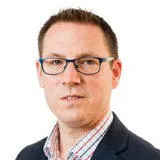Please note: this event has passed
Chair: Dr. Craig Larkin, Senior Lecturer in Comparative Politics of the Middle East and Director of the Centre for the Study of Divided Societies (CSDS), King’s College London
Speaker: Omar Mohammed, Historian and blogger ‘Mosul Eye’
A CSDS (Centre for the Study of Divided Societies) Seminar
When Daesh (ISIS) occupied Mosul, they dismantled the social confidence and trust between Mosul's diverse communities. Targeting the city's historic inter-religious bonds, they killed and enslaved Yazidis, deported Christians and declared their own version of Islam as supreme and superior. Similarly they dismantled Mosul's Muslim community, dividing and stratifying, labelling those who opposed their ideology as "Servants of the Crusaders''. Daesh's violent destruction of Mosul's society did not only take physical, social and intellectual forms, but also it targeted the most visible representation of Mosul's multicultural and diverse identities by destroying the cultural heritage of the city. In the post-ISIS aftermath key questions remain: How can we heal a society that went through such destruction? How can we rebuild communal trust? What is the role of history, if any, in reconstructing Mosul's communal trust and co-existence?
In this webinar Omar Mohammed (Mosuleye) will explore Daesh's (ISIS) destructive legacy in Mosul and the challenge of reconstructing communal trust and confidence in contemporary Iraq.
Bio
Omar Mohammed is a historian from Mosul, known until recently only as the anonymous blogger ‘Mosul Eye’. Through Mosul Eye, Omar set out to inform the world about life under the Islamic State in his city. He is currently teaching Middle East History and Cultural Heritage Diplomacy at Sciences Po University. His focus has now shifted to the advocacy of social initiatives for the people of Mosul, including the international effort to re-supply Central Library of the University of Mosul. At the intersection of media, academia, and civil society, Omar is motivated to develop new networks of collaboration and innovations in humanitarian action. As a historian and lecturer at the University of Mosul, he focuses his scholarly work on conceptual history and research dealing with local historiographies and narratives, micro-histories, and Orientalism. Omar is a regular media commentator on Iraq, has an MA in Middle East History from the University of Mosul, and was named 2013 Researcher of the Year by Iraq’s Ministry of Higher Education and Scientific Research. His doctoral research explores history and historians in the 19th and 20th century Mosul.

